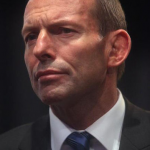A general election in Australia has resulted in a change of government. The Labour Party administration of Kevin Rudd was voted out and succeeded by a coalition of the Liberal and National Parties. Liberal leader, Tony Abbott, will be Australia’s 28th Prime Minister.
The result does not come as much of a surprise, with polls as far back as the start of the election campaign indicating a likely victory for Abbott over Rudd. A Ray Morgan Channel 10 exit poll predicted the Coalition would pick up 42.5% of the primary vote with Labour at 33.5%.
Vote counting is not yet complete, but the coalition appears set for a landslide. They have over 85 seats, well above the 75 needed to form a government.
Labour’s campaign was greatly overshadowed by personality politics and infighting. Rudd, who initially became Prime Minister in 2007 lost his party’s confidence in 2010 and was replaced by his deputy, Julia Gillard. Gillard, who led a minority government from 2010-13 with the aid of Greens and Independents, was in turn unseated in June. Rudd has taken over as Prime Minister since then.
Economically Labour had what looks like a good record. The first Rudd administration provided an economic stimulus package, in response to the 2009 financial crisis, and Australia one of the few developed economies to avoid a recession in the late 2000s. Growth has averaged 2.5% for the 2013-14 period.
However, the Liberal Party has alleged that ‘things are not as good as they could have been’. Further, the seemingly good statistics mask a mixed situation. Gross national debt, as of 2012, exceeded A$200,000,000,000. Unemployment has also climbed over the last year, from around 5.2% to nearer 5.7%. It has also been argued that the economy is overly dependent on mining and exports to China. The success of the mining industry masks weakness in other sectors.
The incoming Abbott government has prioritised reducing national debt, whilst also focusing on job creation (they are aiming for 1 million new jobs) and personal income tax cuts. This last proposal contrasts with Labour’s intention to increase income tax for those earning over $100,000. They also intend to scrap Labour’s carbon tax plans.
On social issues, Abbott has extremely conservative views. Unlike Rudd, who intended to put gay marriage on the agenda in the next parliament, Abbott believes marriage should be ‘between one man and one woman’. This is despite his sister being openly homosexual. This and other views (such as opposition to abortion) stem from his Catholic faith.
With regard to immigration and asylum seekers, Abbott’s government are proposing tight restrictions (although Australia hardly has open borders as it is). The coalition plan to deny judicial review to failed asylum seekers. For successful refugees arriving by boat, only temporary protection visas will be available. These remove rights for family reunion. The legality of these reforms have already been questioned, and should prove a point of contention during this administration’s tenure.
The National Party, the liberals’ coalition partners, generally advocate similar policies. Their main emphasis is to represent rural communities and advocate issues relating to the countryside.
